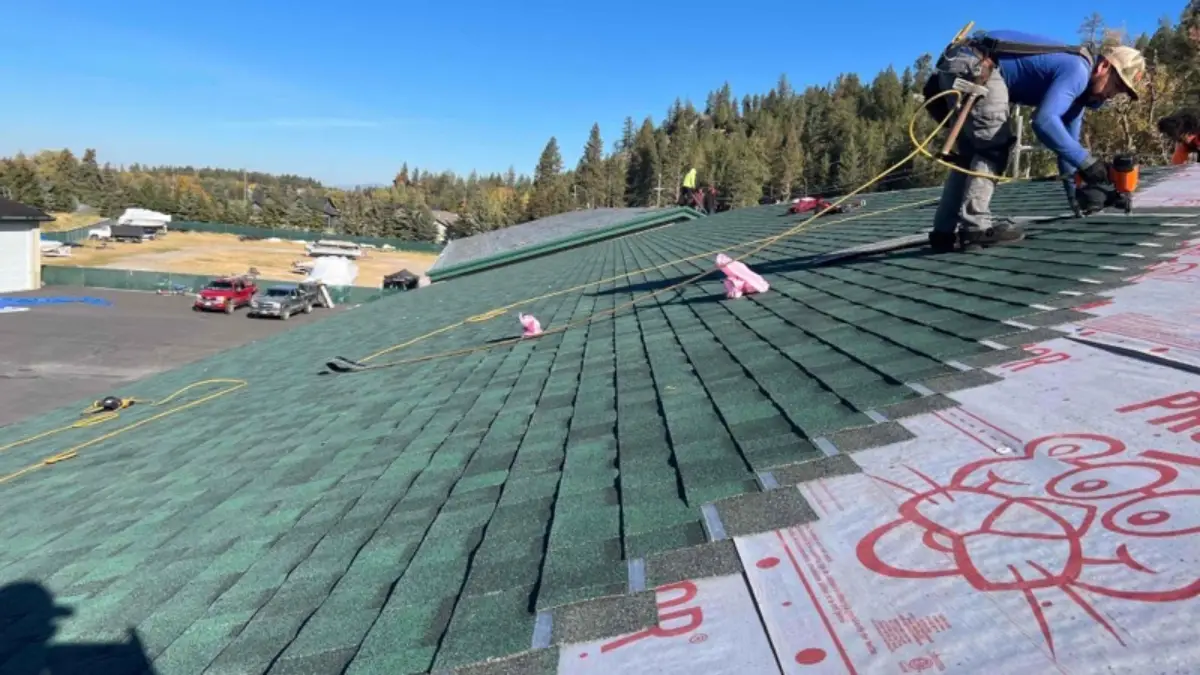Your roof is a vital component of your home, protecting it from the elements and contributing to its overall structural integrity. When faced with roofing issues, such as roof damage, homeowners often grapple with a crucial decision: should they opt for roof repair or a full replacement? This decision can significantly impact both the short-term and long-term health of your home. In this blog, we’ll explore the factors that influence whether roof repair or roof replacement is the right choice for you based on insights from industry experts.
Understanding Roof Repair
Roof repair involves fixing specific issues that have arisen with your existing roof. This option is typically used when problems are localized and do not affect the entire roof structure. Common repair issues include:
- Leaks: Leaks can be caused by damaged shingles, flashing, or poor sealing around vents and chimneys.
- Missing or Damaged Shingles: Shingles may become loose or break due to severe weather or aging. Missing asphalt shingles can be particularly challenging to replace, as matching the new shingles with the existing roof color is crucial. It’s often helpful to have leftover shingles or to source matching materials from contractors.
- Minor Structural Issues: These might include small cracks or sagging areas that can be repaired without replacing the entire roof.
Pros of Roof Repair:
- Cost-Effective: Roof repairs generally come with a lower price tag compared to full roof replacements. For homeowners dealing with minor damage or leaks, repairs can offer a more economical solution. Additionally, repairing a few shingles is often both easy and cost-effective.
- Quick Turnaround: Repair jobs are usually completed in a shorter time frame, minimizing disruption to your household. Most minor repairs can be handled within a single day.
- Targeted Solution: Repairs address specific issues, allowing homeowners to fix problems without undergoing a complete overhaul of the roof.
Cons of Roof Repair:
- Limited Lifespan Extension: While repairs can fix immediate issues, they do not extend the overall lifespan of your roof significantly. The underlying problems may resurface, especially if the roof is nearing the end of its useful life.
- Potential for Recurring Problems: If the root cause of the damage is not properly addressed, you might experience similar issues in the future. For example, if a roof is old and has widespread wear, patching up leaks may only provide a temporary fix.
Free Roof Inspections. Fast. Reliable.
Is your roof ready to weather the storm? Dont risk property damage. Our free roof inspections provide expert analysis to identify potential issues before they become costly problems.
Understanding Roof Replacement
Complete roof replacement involves removing the existing roof and installing a new one. An entire roof replacement may seem more expensive upfront compared to ongoing repairs, but it can ultimately be more cost-effective in the long run, especially for roofs with widespread damage that require multiple repairs. This option is typically recommended when the roof is old or severely damaged or when you’re looking to upgrade to a different type of roofing material.
Pros of Roof Replacement:
- Long-Term Solution: Replacing your roof provides a long-term solution to roofing problems. A new roof comes with a warranty and can last for several decades, depending on the material used.
- Improved Energy Efficiency: New roofing materials often include modern insulation technology that can improve energy efficiency, potentially lowering heating and cooling costs.
- Enhanced Property Value: A new roof can significantly increase your home’s market value and curb appeal. Prospective buyers are often willing to pay more for a home with a new roof, knowing they won’t face immediate roofing issues.
Cons of Roof Replacement:
- Higher Initial Cost: The cost of a full roof replacement is generally higher than repairs. This includes the cost of materials, labour, and any additional expenses related to the removal of the old roof.
- Longer Project Duration: The process of replacing a roof is more time-consuming than repairs. Depending on the size of your home and the complexity of the roof, replacement can take several days or even weeks.
- Temporary Disruption: The installation of a new roof can cause temporary disruption to your daily routine. You may experience noise, activity around your home, and potential impacts on your landscaping during the process.
Key Factors to Consider in Roof Repair vs Replacement
When deciding whether to repair or replace your roof, several key factors should guide your decision:
1. Roof Age
The age of your roof is a critical factor in determining whether to repair or replace it. Roofing materials come with varying lifespans:
- Asphalt Shingles: Typically last between 15 to 20 years.
- Metal Roofs: Can last 40 to 70 years.
- Clay Tiles: Often last 50 to 100 years.
If your roof is approaching or surpassing its expected lifespan, a replacement might be more cost-effective than repeated repairs.
2. Extent of Damage and Roof Leaks
Assessing the extent of the damage is essential for making an informed decision. Evaluating the condition of the roof deck is crucial, especially when determining the impact of storm damages that could compromise its integrity. If the damage is isolated—such as a few missing shingles or minor leaks—repairing might be sufficient. However, if the roof shows signs of extensive wear, such as widespread leaks or structural issues, a replacement could be a better long-term solution.
3. Budget
Your budget plays a significant role in deciding between repair and replacement. While repairs are generally cheaper upfront, frequent issues can add up over time. A new roof requires a larger initial investment but offers a comprehensive solution and potentially saves you from ongoing repair costs.
4. Home Value and Curb Appeal
Consider how each option impacts your home’s value and curb appeal. A new roof can significantly enhance your home’s appearance and increase its market value. If you plan to sell your home soon, a new roof could be a valuable investment. On the other hand, if you’re staying in your home for the foreseeable future, a repair might be a more practical solution.
5. Energy Efficiency
New roofing materials can offer improved insulation and energy efficiency. If your current roof is contributing to high energy bills due to poor insulation or outdated materials, a replacement could provide significant savings over time. Modern roofing technologies and materials can enhance your home’s energy efficiency, leading to lower utility costs.
Professional Assessment
Consulting with a professional roofing contractor is crucial for making an informed decision. A roofing expert, like those at River City Roofing, can conduct a thorough inspection of your roof and provide personalized advice based on their findings. Here’s what to expect during a professional assessment:
- Detailed Inspection: A professional will examine your roof for damage, wear, and overall condition. This includes checking for a roof leak, structural issues, and the general state of the roofing materials.
- Addressing roof leaks promptly is essential to prevent extensive damage to your home. Professional inspections can identify the sources of roof leaks, such as penetrations and storm damage, and recommend timely repairs.
- Recommendations: Based on the inspection, the contractor will recommend whether repair or replacement is the best option. They will consider factors such as the extent of the damage, the roof’s age, and your budget. Many roofing companies offer financing options to help manage the costs.
- Cost Estimates: You’ll receive detailed estimates for both repair and replacement options, allowing you to compare the financial implications of each choice. Consulting a reputable roofing company ensures accurate assessments and trustworthy recommendations.
Choosing the Right Contractor
Selecting a reputable roofing contractor is essential for a successful repair or replacement project. Look for the following qualities when choosing a contractor:
- Experience: Choose a contractor with a proven track record and extensive experience in roofing.
- Credentials: Ensure the contractor is licensed and insured to protect yourself from potential liabilities.
- Reviews and References: Check customer reviews and ask for references to gauge the contractor’s reputation and reliability.
Conclusion
Deciding between roof repair and roof replacement involves careful consideration of various factors, including your roof’s age, the extent of damage, your budget, and the potential impact on your home’s value and energy efficiency. Consulting with a professional roofing contractor, such as those at River City Roofing, can provide valuable insights and help you make the best decision for your situation.
Whether you choose to repair or replace your roof, addressing roofing issues promptly is essential for maintaining the safety and integrity of your home. A well-maintained roof not only protects your home but also contributes to its overall value and energy efficiency. If you’re facing roofing issues or need expert advice, don’t hesitate to contact a professional roofing contractor to ensure you make the best choice for your home’s needs.



